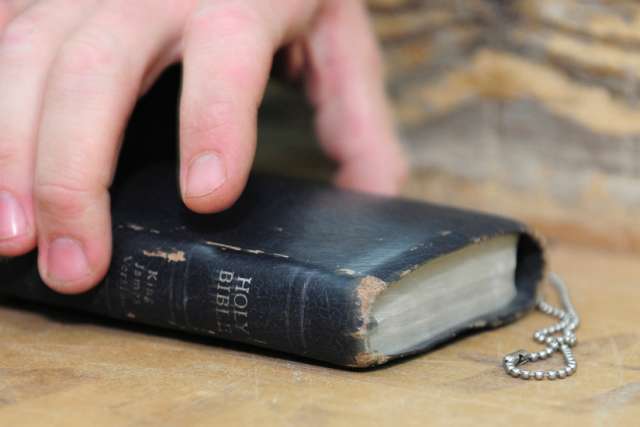The unusual thing was that the other Church leaders, and many assembled there, were from different Christian denominations.
Maybe it was the setting of prayer and good will. Maybe it was the quality of the reflections these pastoral leaders gave, the depth of their personal witness or the way their different talks (prepared independently) seemed to illuminate each other. All at once, the service ceased to be a formal event and became an encounter. The kind of encounter we can’t create on our own, but can be part of.
The occasion was the 50th anniversary of the Decree on Ecumenism. It’s a brief little three-chapter booklet that started something — the Catholic Church’s commitment to actively seek full Christian unity — but also received something — the work the Holy Spirit was doing to renew and heal relationships.
The prayer service itself witnessed this work.
As I look back over my years in ecumenical (inter-church) work, I discover profound lessons it’s taught me, which apply in all areas of life and enrich me tremendously.
It’s shown me that sin is real and has consequences. Sin — one’s own, or someone else’s — can keep people apart, isolated, dour, joyless. The person who endures violence as a child was sinned against, and suffers in adulthood. Sins against other Christians, in the name of Christianity, hurt the Church and its mission. The Decree on Ecumenism tells us “men of both sides were to blame” for Christian division, which “openly contradicts the will of Christ, scandalizes the world and damages the holy cause of preaching the Gospel to every creature.”
Inter-church work has taught me how to face the impossible: start where you can. (Jean-Luc Picard: “Things are only impossible until they’re not.”) If you can’t think of any place else to start, you can start with trying to love better or receive love better. Or you can look at the other as they are now, instead of thinking about the past. The Church suggests letting the “Dialogue of Love” lead to the “Dialogue of Truth.” Can’t bear to speak to your brother after that final argument a few years ago? Might you be able to pray for him, or pray for the desire to reconcile, or put his photograph on your prayer table?
A related lesson, easily said but not easily lived: Never give up. Years ago, before mobile telephones were common, my sister and I arranged to meet at a certain restaurant. Fifteen minutes passed, 30, more. Where could she possibly be? Finally, we discovered we were standing on opposite sides of the same door. We’d both kept the commitment, but had understood it differently. Some elements of Christian division go much deeper than that, but not all do. It’s important to sort out the real divisions from the false or shallow ones. All divisions can be overwhelming and discouraging if we look only at them.
If we start where we’re connected, can the hard work of connecting better become joyful work?
So we continue. But it’s not easy. And we may get stuck, but the “stuck” place can become the place of change. Many Christian churches have been out of communion with each other for centuries, a depressing situation that seems perpetual. Meanwhile, people are living their Christian lives within that broken, “imperfect” communion. Some of them meet, fall in love outside church boundaries and marry while keeping their two different Christian traditions. By their marriage, they form a “domestic church.” In a sense, they are “marrying” their churches and their families bring forth life in the “stuck” place.
It’s graced work, but it is work. It’s easier to break relationships than to mend them. They’re worth the daily effort it takes to keep them healthy and strong.
Attending the anniversary prayer service reminded me there’s something going on here that’s beyond us. We are being urged toward one another. In confirmation class, we learned that John’s Gospel uses the word “paraclete” for the Holy Spirit, a tough Greek word to translate into English. Exhorter, encourager, comforter, advocate, intercessor, teacher, helper: we learned them all. We are being exhorted, helped, taught, impelled to take a long, loving look at each other. If the Paraclete weren’t urging us, would we be doing it?
“What a grace, and what a responsibility … to know that this shared hope does not deceive us because it is founded, not upon us or our poor efforts, but rather upon God’s faithfulness” (Pope Francis to Patriarch Bartholomew, November 2014).
Week of Prayer for Christian Unity is January 18-25.
(Marrocco can be reached at marrocco7@sympatico.ca.)


